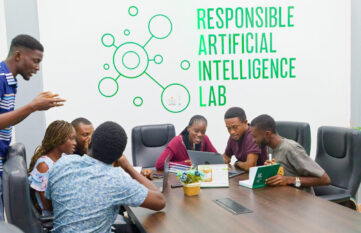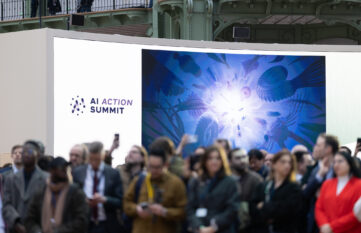Watch out on the internet: Together against fake news

In times of global autocratization and social and political polarization, the relevance of disinformation significantly increases. Especially during election campaigns, fake news and manipulated content are deliberately spread to undermine trust in political opponents and influence public opinion. In today’s global and digital information environment, disinformation can be produced with minimal effort and cost. Manipulative content and fake news spread rapidly.
This can undermine democratic processes, e.g. the legitimacy of elections, and challenge entire states and societies. The Global Risks Report 2024 of the World Economic Forum, identifies mis- and disinformation as the currently greatest threat to the international community. UN Secretary-General António Guterres also speaks of an “epidemic of misinformation“.
Joining forces to tackle disinformation
To adequately address this phenomenon, the cooperation of all actors and different approaches is necessary. Therefore, German development cooperation supports the capacity building of its partners at all levels and includes civil society, private sector, academia, media, and governments. For example, state and non-state experts are advised on digital policy issues, including coordinated crisis communication during disinformation campaigns, strategic communication (e.g., prebunking and proactive communication), as well as AI regulation or self-regulation of social platforms.
In West Africa, for example, the BMZ is supporting the project “Strengthening resilient information ecosystems in West Africa” with the support of the European External Action Service. The aim is to strengthen the capacity of civil society, media professionals and government actors in Côte d’Ivoire and Senegal, with a special emphasis on young people and women. Taking a multi-actor and whole-of-society approach, the project´s focus is on identifying, monitoring and responding to disinformation. Existing instruments will be used, and new approaches will be tested, e.g. to simplify the automated detection of disinformation with the help of artificial intelligence. Moreover, to counteract transnational disinformation campaigns and structures, cross-border networks are being developed and (self-)regulation issues are being discussed at regional level.
Role of media is essential
In order to invalidate disinformation and preventing them from causing harm, profound journalistic work, independent media houses, and a high level of media literacy among the population are required. The DW Akademie is the Deutsche Welle’s center for international media development, journalism training and knowledge transfer. As a strategic partner of the BMZ, it contributes to robust media systems and combating disinformation through its global projects.
For example, the DW Akademie strengthens the financial stability of media houses in partner countries to enable independent reporting and enhances people’s ability to use media critically. Additionally, DW Akademie is strengthening the economic sustainability of media companies by further developing their business models and preparing for crisis situations. In Georgia, local quality media receive training, coaching, and consulting on audience research, brand development, and management. Journalistic training in fact-checking is also part of the project. As a result, people in various regions of the country can access higher-quality news and are better equipped to recognize and assess disinformation.

Media literacy is another important pillar in the fight against disinformation. DW Akademie and its partner organizations help people in partner countries of German development cooperation to distinguish high-quality information from fake news, propaganda or advertising. By doing so, societies become more resilient to lies and manipulation, especially before elections. In various countries in Central and South America, disinformation campaigns by governments and criminal networks weaken public institutions and undermine the rule of law. DW Akademie and its partner organizations work to educate and promote critical media use. Together with the Institute for Radio Education (IGER), DW Akademie is a pioneer in Media and Information Literacy in Central America. IGER integrates media literacy as a component of distance education programs. The institute reaches over 10,000 young people from particularly disadvantaged areas of the region. These young people and adults learn to use media more independently, confidently, and critically, thereby enhancing their educational opportunities.


